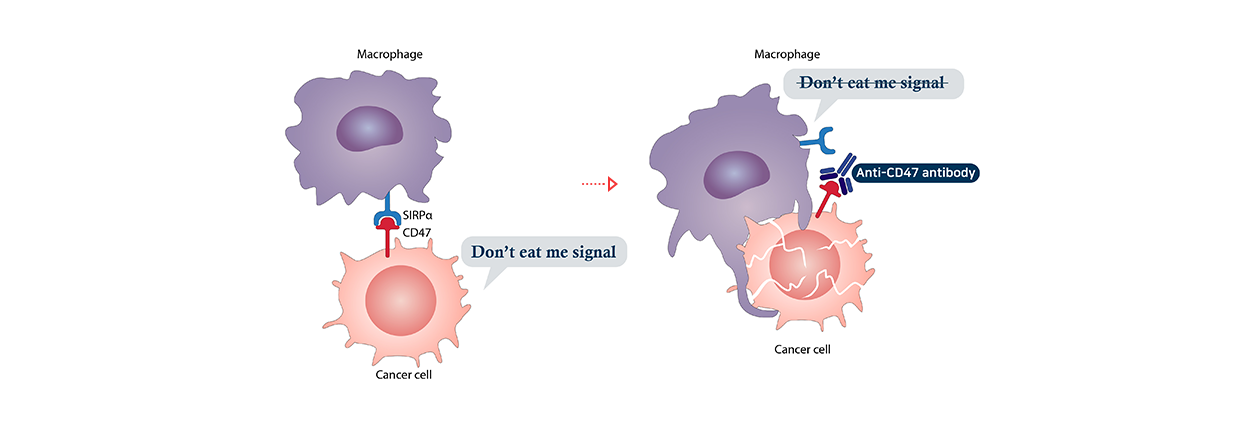
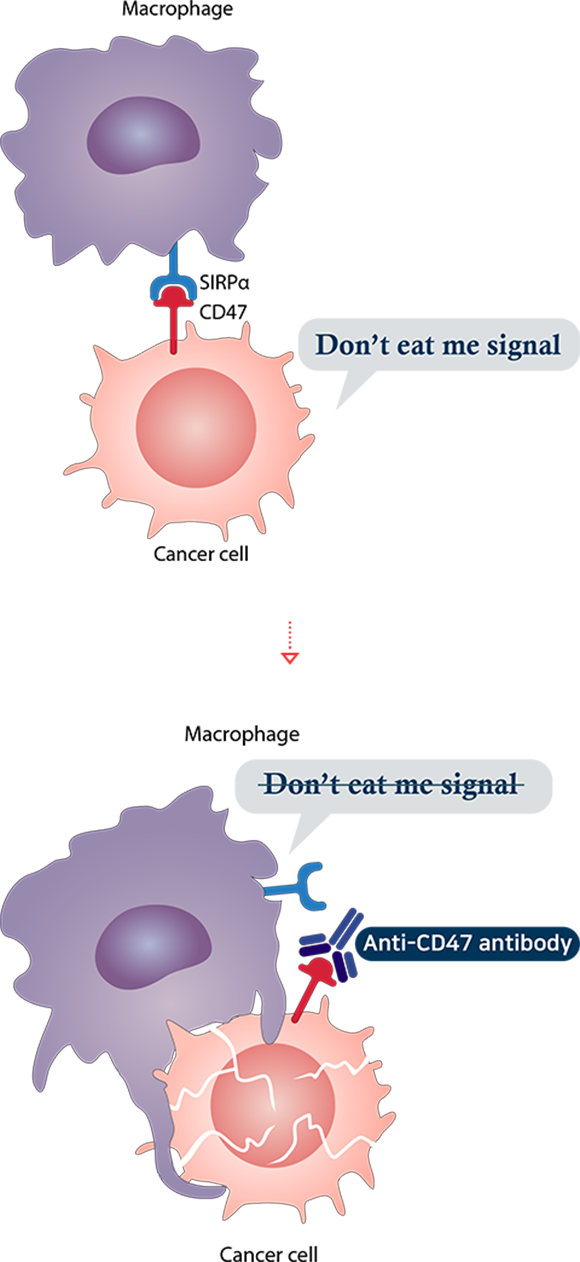
Antibody
As of today, the antibody is the most successful therapy in treating cancer patients. Cancer cells evade the host's immune surveillance that is orchestrating macrophages, NK cells, T cells, etc.
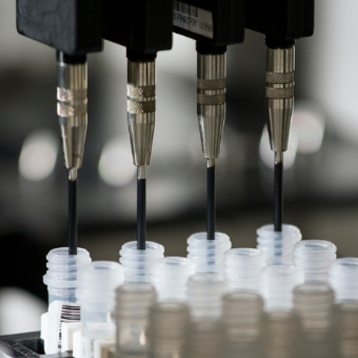
A lot of research
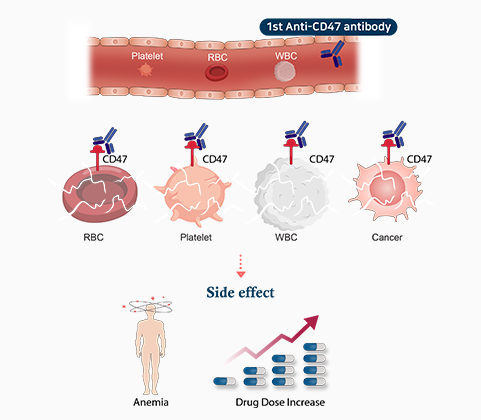
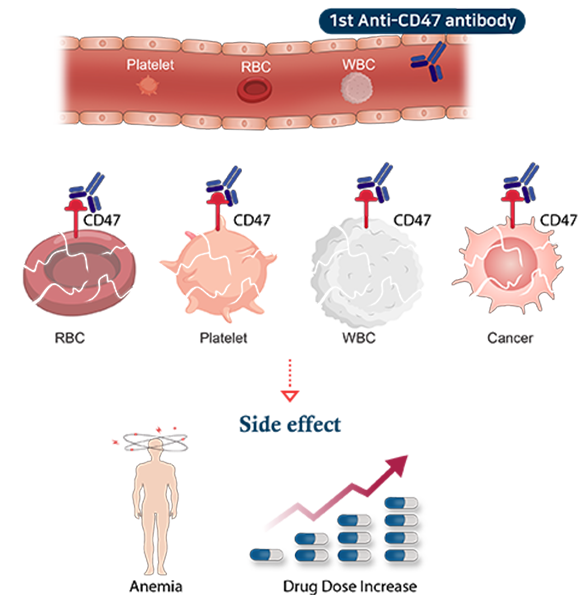
InnoBation Bio has developed an anti-CD47 monoclonal antibody clone 3A5 by immunizing mice with the extracellular domain of human CD47 protein. The anti-CD47 monoclonal antibody was humanized by CDR grafting and polished into the clone 3A5-V10 for further development. 3A5-V10 has a KD (equilibrium dissociation constant) value of 0.48 nM and effectively promotes engulfing of live tumor cells by human macrophages. Of note, in in vitro assay, 3A5-V10 does not bind to RBCs or platelets, and it does not cause hemolysis at all.
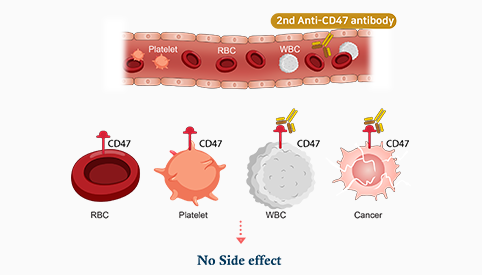
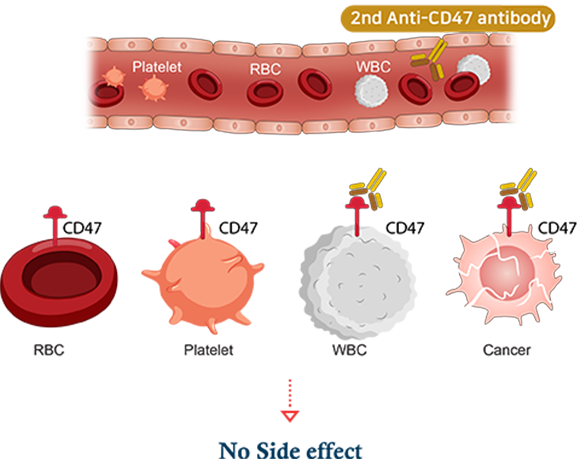
In an animal tumor model, where MC38 murine colon adenocarcinoma cells expressing human CD47 are implanted in immune-competent mice, 3A5-V10 alone doesn't show significant tumor suppression as a single-agent, but completely suppress the tumor growth in combination with an anti-PD1 antibody. Excitingly, the combination of 3A5-V10 and anti-PD1 antibody also leads to complete regression of MC38 cells expressing human CD47 in human CD47 and SIRPα knock-in mice without notable organ damages including liver, lung, and kidney.